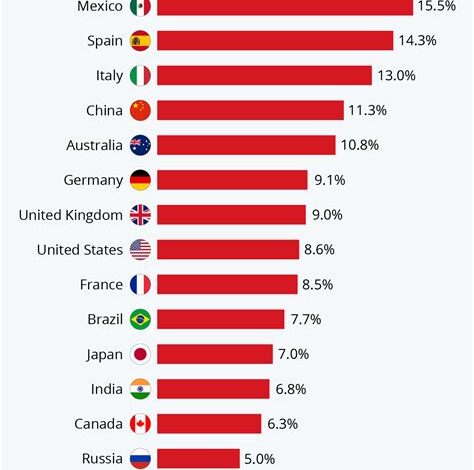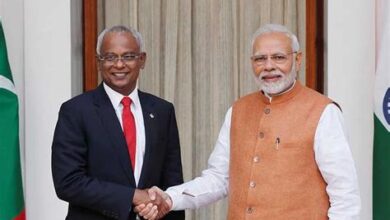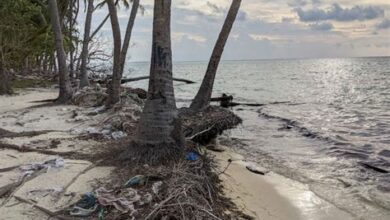Economic Impact of Tourism in the Maldives Post-Pandemic

Discover the current economic situation in the Maldives and explore the challenges and strategies for tourism industry recovery post-pandemic. Learn about projected economic growth and long-term resilience.The economic impact of tourism in the Maldives has been significant for decades, with the industry serving as a primary driver of the country’s economy. However, the global COVID-19 pandemic has dealt a severe blow to the Maldives’ tourism sector, leading to economic hardship and widespread challenges. As the country looks towards a post-pandemic future, it is crucial to examine the current economic situation in the Maldives, the specific challenges facing the tourism industry, and the strategies being employed to revive this critical sector. In this blog post, we will delve into the projected economic growth from the tourism rebound, as well as the long-term economic resilience of the Maldives. By understanding these factors, we can gain insight into the potential impact of tourism on the country’s economy and the measures being taken to ensure a sustainable and resilient future.
Current Economic Situation in Maldives
The current economic situation in the Maldives is a topic of concern for many, especially in the wake of the devastating impact of the COVID-19 pandemic on the tourism industry. Prior to the pandemic, the Maldives was heavily reliant on tourism as a major contributor to its economy, with millions of tourists flocking to the picturesque islands each year. However, with travel restrictions and border closures, the country faced a significant decline in tourism, leading to economic challenges and financial strain on many businesses and individuals.
As a result, the government of Maldives has been implementing various strategies to mitigate the economic impact of the pandemic and support the recovery of the tourism industry. These strategies include financial assistance programs, infrastructure development projects, and initiatives to attract international tourists back to the Maldives. Despite these efforts, the road to economic recovery remains a significant challenge, and the government continues to seek opportunities for long-term economic resilience in the face of ongoing uncertainty.
Looking ahead, it is crucial for stakeholders in the Maldives, including businesses, local communities, and government authorities, to work together in addressing the current economic situation and charting a path towards sustainable growth. By fostering innovation, diversifying the economy, and embracing long-term strategies for economic resilience, the Maldives can navigate through the challenges and emerge stronger in the post-pandemic era.
Tourism Industry Challenges After Pandemic
Tourism Industry Challenges After Pandemic
The tourism industry in the Maldives has faced significant challenges in the aftermath of the COVID-19 pandemic. With travel restrictions, lockdowns, and fear of the virus, the number of tourists visiting the Maldives has drastically decreased, leading to a severe impact on the country’s economy.
One of the major challenges faced by the tourism industry in the Maldives post-pandemic is the need to rebuild consumer confidence. Many potential tourists are still hesitant to travel, and it is crucial for the industry to address their concerns and reassure them of their safety. This may require implementing strict health and safety protocols, as well as promoting the Maldives as a low-risk destination for travelers.
Another key challenge is the need to adapt to the changing travel trends and preferences of tourists. The pandemic has altered the way people travel, with a shift towards more sustainable and responsible tourism. The Maldives will need to focus on eco-friendly initiatives, community-based tourism, and offering unique experiences that align with the new demands of travelers.
Strategies to Revive Tourism in the Maldives
The Economic Impact of Tourism in the Maldives Post-Pandemic
Tourism has always been the backbone of the economy in the Maldives, contributing significantly to the country’s GDP and providing employment opportunities for its citizens. However, the COVID-19 pandemic has dealt a severe blow to the tourism industry, with travel restrictions, lockdowns, and a decline in international travel leading to a drastic decrease in tourist arrivals.
The Maldivian government and tourism stakeholders are now faced with the challenge of reviving the industry and bringing back the influx of tourists to the country’s picturesque islands. To achieve this, strategies need to be put in place to attract tourists, assure their safety, and provide them with an unforgettable experience that will make them want to return in the future.
One of the key strategies to revive tourism in the Maldives post-pandemic is to focus on sustainable and responsible tourism practices. This involves promoting eco-friendly initiatives, conservation efforts, and supporting local communities to showcase the Maldives as an environmentally conscious and socially responsible destination. Furthermore, the implementation of stringent health and safety protocols, along with vaccination drives for tourism employees and local communities, will be crucial in rebuilding trust and confidence among tourists.
Projected Economic Growth from Tourism Rebound
Projected Economic Growth from Tourism Rebound
The Maldives, a popular tourist destination known for its pristine beaches and luxury resorts, experienced a significant decline in tourism due to the COVID-19 pandemic. As the country looks to recover from this setback, there is hope for projected economic growth from the rebound of the tourism industry.
With travel restrictions easing and vaccination rates increasing globally, the Maldives is poised to see a surge in tourism in the coming years. This influx of visitors is expected to have a positive impact on the local economy, creating jobs and generating revenue for the government.
Additionally, the Maldives government has implemented various measures to attract tourists, such as offering incentives to travel companies and implementing safety protocols to ensure the well-being of visitors. These efforts are projected to contribute to the economic growth of the country as tourism rebounds.
Long-term Economic Resilience in Maldives
The Maldives has long been known for its stunning natural beauty, pristine beaches, and luxury resorts. The tourism industry has been a major driver of the country’s economy, contributing to a significant portion of its GDP and providing employment to thousands of people. However, the pandemic has brought about unprecedented challenges for the industry, leading to a sharp decline in tourist arrivals and revenue. As the country looks ahead to the post-pandemic era, it is crucial to develop strategies that will ensure the long-term economic resilience of the Maldives.
One key aspect of ensuring the long-term economic resilience of the Maldives is to diversify its economy beyond tourism. While tourism has been a major contributor to the country’s economy, the pandemic has highlighted the risks of over-reliance on a single industry. The government can explore opportunities to develop other sectors such as agriculture, fisheries, and information technology to create new sources of income and employment.
In addition to diversifying the economy, it is crucial for the Maldives to invest in sustainability and environmental protection to ensure the long-term viability of its tourism industry. The ecosystem of the Maldives is its most valuable asset, and it is essential to protect and preserve it for future generations. By implementing environmentally friendly practices and reduce plastic waste, the country can distinguish itself as a sustainable tourism destination, attracting conscious travelers and ensuring the long-term resilience of its tourism industry.





